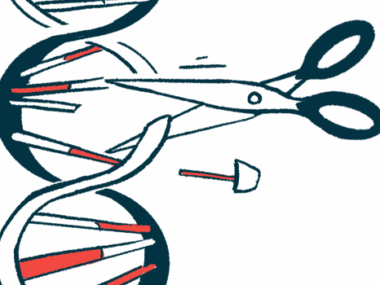First-round Winners Announced for Foundation’s 2019 Prader-Willi Research Awards
Written by |

The Foundation for Prader-Willi Research (FPWR) recently announced the first-round winners of its 2019 research awards, which collectively totals a financial investment of $786,000 in grants.
Theresa Strong, PhD, the foundation’s director of research programs, described the projects of the eight grant recipients and how their investigations may have important implications to Prader-Willi syndrome (PWS) in the future, during a webinar on March 21, 2019.
In brief, the eight first-round 2019 winners receiving FPWR grants include:
- Gordon Carmichael, PhD, from the University of Connecticut, with a project titled “Genome-wide identification of mRNA sites of 2’-O methylation targeted by SNORD116 snoRNAs.” The project will focus on understanding the role of genes involved in PWS (namely the SNORD116 gene cluster), and help stimulate the development of new therapies to minimize the effects associated with their loss ($54,000 grant);
- Michael Talkowski, PhD, from the Massachusetts General Hospital, with a project titled “CRISPR-mediated molecular dissection of Prader-Willi syndrome.” For the second time, the research team has received funding to develop new cellular models of PWS using the gene-editing tool CRISPR-Cas9 ($108,000 grant);
- Marcelo Dietrich, PhD, from Yale University, with a project titled “The functional development of hunger neurons in Prader-Willi Syndrome.” The project will focus on studying the development of certain types of neurons involved in the control of hunger (AgRP neurons) in a mouse model of PWS ($107,999 grant);
- Edward Fox, PhD, from Purdue University, with a project titled “Enhancing satiation signaling to reduce overeating and obesity in Prader-Willi Syndrome.” The project will focus on assessing whether enhancing satiety signals in a specific region of the brain may increase the overall feeling of satiety and prevent excessive food intake in a mouse model of PWS ($75,598 grant);
- Jim Resnick, PhD, from the University of Florida, with a project titled “A mouse model to assess genetic therapies for Prader-Willi syndrome.” The researchers will focus their efforts on creating a new mouse model that allows them to activate and/or replace the missing PWS genes whenever and wherever they choose during development, to explore the therapeutic potential of gene therapy for PWS ($98,469 grant);
- Marnie Blewitt, PhD, from the Walter & Eliza Hall Institute of Medical Research, with a project titled “Targeting SMCHD1 to address the underlying cause of PWS and SYS.” The team will conduct a proof-of-concept study to demonstrate the therapeutic potential of a gene therapy that eliminates SMCHD1 — a protein that has been shown to silence PWS cluster genes on the maternal chromosome 15 — for PWS and Schaaf-Yang syndrome (SYS) ($97,200 grant);
- Louise Gallagher, MD, from the Trinity College Institute of Neuroscience, with a project titled “Influences of social cognition and reward on ASD symptoms and behaviour in PWS.” The project will focus on studying the impact of social cognitive impairments on the behavior of patients with PWS ($95,589 grant);
- Lauren Rice, PhD, from the University of Sydney, with a project titled “Investigating a new potential target for treatment in Prader-Willi syndrome.” The research team will use brain imaging to measure the levels of the inhibitory neural signal GABA in the brain, and to assess if a therapy that normalizes the levels of GABA — called acamprosate — may also improve the behavior of individuals with PWS ($149,228 grant).
Since 2003, the FPWR — whose main goal is to support research and scientific innovation in PWS — has awarded more than $12 million to support research on the disease worldwide.





